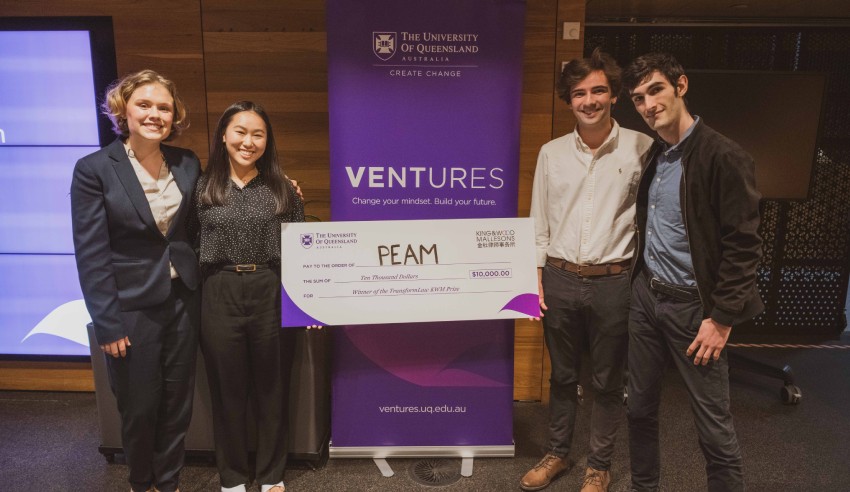An AI sentiment analysis tool designed by Queensland law students could forever change the game for mediation in family law matters, including by reducing the time and money spent resolving a case and responding to the high stress and emotions.

Using the highly innovative technology solution PEAM (Preparing Emotionally Aware Mediation), four University of Queensland students have created a solutions-focused tool that will allow individuals in family court matters to better communicate, which could ultimately affect the outcomes of matters and deliver more efficient resolutions.
Bachelor of science (psychology) and bachelor of laws (honours) student Grace Beattie explained that users are prompted to address half a dozen questions under a number of umbrella parenting issues created in consultation with stakeholders.
“PEAM then uses artificial intelligence to read the user’s answers and test them for negative and emotional sentiments. If the wording is too aggressive or negative, the user is prompted to rethink their wording,” Ms Beattie commented, adding that the process repeats until the responses reach an “emotionally neutral point”.
“Once the user finishes working through the function, they will have clear, persuasive and emotionally neutral arguments ready to take into their mediation session. This helps individuals feel prepared and calm – and subsequently, more likely to engage in meaningful outcome resolutions,” Ms Beattie explained of PEAM.
The #TransformLaw program is delivered in an eight-week incubator-style that connects students with mentors – often legal practitioners – to be guided through prototyping stages of their ideas. The mentors provide a strong and diverse range of expertise, explained politics, philosophy and economics student Nelson Prichard.
“They allowed us to screen our assumptions and iterations of the prototype,” he added. “Reaching out to other stakeholders and experts such as Jacqui Griffin from Family Law Assist, Andrea Perry-Peterson and Patrick Parkinson allowed us to really deepen our research, resulting in a better understanding of family law.”
Working with the mentors, the PEAM team then interviewed a wide range of stakeholders that helped to emphasise the experience of being involved as a litigant.
“Many of them mentioned the stress and mental health issues resulting from the heavy workload and difficulty detaching emotions when problem-solving, especially after experiencing traumatic family breakdowns,” said bachelor of commerce/bachelor of laws (honours) student Leidi Peng.
“We wanted to create something to truly support them and achieve better outcomes.”

Naomi Neilson is a senior journalist with a focus on court reporting for Lawyers Weekly.
You can email Naomi at: